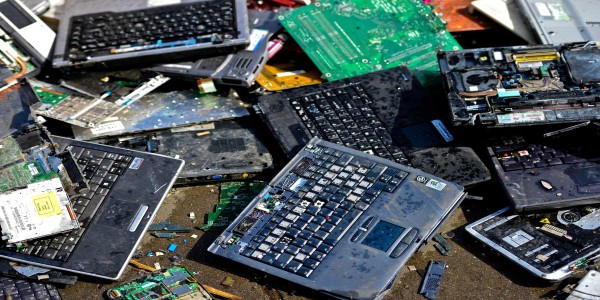Less e-waste would be good. If it happened in the right way
Which is exactly what is happening now.

Between 2014 and 2019, we produced roughly 10 Great Pyramids of Gizas' worth of pluggable and battery-powered trash each year. Now, says Grist, this flood of electronic waste will go down, but for the wrong reasons.
One effect of COVID-19 in the first three quarters of 2020 was to reduce global sales of electronics and electrical equipment so much that “more than 5 million tons of future e-waste were avoided during that time period”.
It turns out that, in the big picture, that big reduction in future e-waste is much less good than it may seem at first sight, for two reasons.
One is that, globally, what actually happened is an increase of the digital divide between rich and poor people.
On one hand, first-world countries bought more smartphones, computers and gaming consoles than before. But in the same period “people living in lower income nations in the Global South, meanwhile, bought 30 percent fewer electronics overall”. Including stuff like fridges, of course, that is a bit more necessary than gaming consoles.
Another reason to be not-completely-happy about the global decrease in e-waste is that “less e-waste” does not automatically mean that it will be properly managed.
Until 2019, “less than 20 percent of e-waste was being formally collected for recycling”, and the pandemic will almost surely lower that percentage for a while. First, because people stuck at home during lockdowns went into a decluttering frenzy that pushed to landfills piles of old electronics that they had ignored for years, just when many recycling facilities were closed.
Second, because “as folks return to their offices in the coming months [there will be] a new surge of equipment from business IT managers who put off recycling old computers for the past year”.
The solution is painfully obvious, isn’t it? Never mind COVID. Just buy as little electronics as you can, and keep them running until they break, or your real needs actually change.
Who writes this, why, and how to help
I am Marco Fioretti, tech writer and aspiring polymath doing human-digital research and popularization.
I do it because YOUR civil rights and the quality of YOUR life depend every year more on how software is used AROUND you.
To this end, I have already shared more than a million words on this blog, without any paywall or user tracking, and am sharing the next million through a newsletter, also without any paywall.
The more direct support I get, the more I can continue to inform for free parents, teachers, decision makers, and everybody else who should know more stuff like this. You can support me with paid subscriptions to my newsletter, donations via PayPal (mfioretti@nexaima.net) or LiberaPay, or in any of the other ways listed here.THANKS for your support!